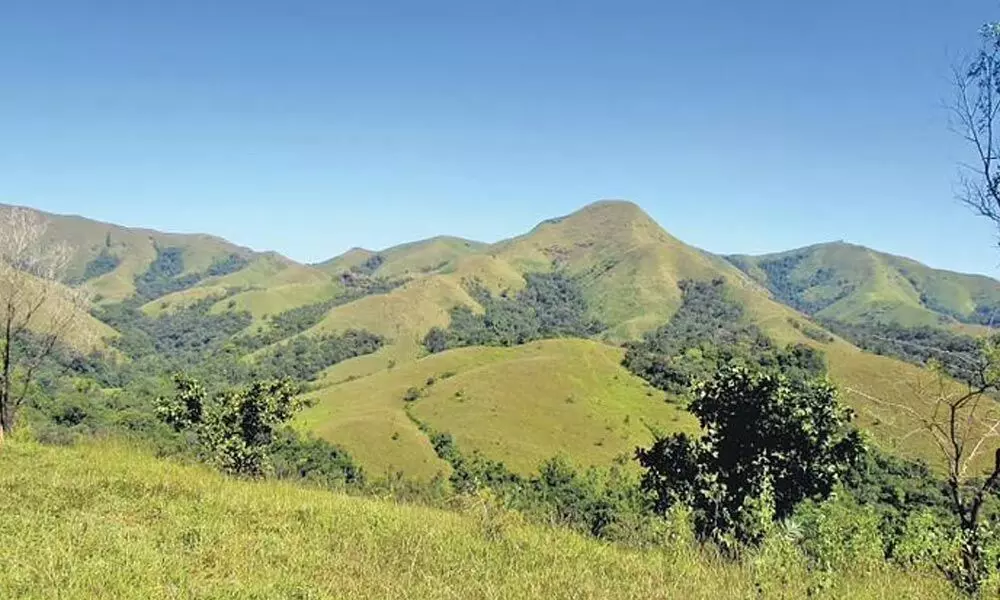Preservation Of The Western Ghats Is Critical In The Fight Against Climate Change

Western Ghats (Photo/newindianexpress)
- The Karnataka government has opted to scrap the Dr. Kasturirangan report on the Western Ghats at a time when the effects of climate change is so obvious in terms of flash floods, landslides, and changes in rainfall patterns.
- The High-Level Working Group was formed to study the proposals given by Prof Gadgil's committee, which was led by Dr. Kasturirangan, an acclaimed space scientist and former ISRO chairman.
The Karnataka government has opted to scrap the Dr. Kasturirangan report on the Western Ghats at a time when the effects of climate change is so obvious in terms of flash floods, landslides, and changes in rainfall patterns. Environmental groups have slammed the move, seeing it as a major setback in the effort to safeguard the Malnad region.
Dr. Kasturirangan's report, which was delivered to the government in 2013-14, was alleged to be a watered-down version of Dr. Madhav Gadgil's. Experts believe that the state and federal governments are engaging politics with the reports' implementation.
Since the central government is still dithering and refusing to take a definite stance on the report's adoption, campaigners stated that it is soliciting opposition from the states to take a judgement and reject it.
The High-Level Working Group was formed to study the proposals given by Prof Gadgil's committee, which was led by Dr. Kasturirangan, an acclaimed space scientist and former ISRO chairman. The report's most important suggestion is that 37 percent of the Western Ghats be declared as an Ecologically Sensitive Area (ESA), with the remaining 63 percent designated as a cultural landscape exempt from the ESA in order to promote sustainable development.
This advice was adopted by the Union Ministry of Environment and Forests, which issued four draught notifications under the Environment (Protection) Act, 1986, with revisions covering only 37% of the natural landscape.
The Western Ghats, which have been designated as a biodiversity hotspot by the United Nations, are in desperate need of conservation, despite the fact that multiple development projects are in the pipeline, posing a threat to the ecology. The rejection of studies like Dr. Kasturirangan's is likely to exacerbate the damage to the Western Ghats in Karnataka and neighbouring states.
While Kerala plans to implement some of the report's suggestions, Karnataka's rejection is seen as the first move toward weakening the Western Ghats' existing protection regulations. Activists argue that this demonstrates how politicians have managed to mislead the public. They claim that residents of the Ghats will be evicted and displaced, despite the fact that Dr. Kasturirangan's study mentions evicting the forest encroachment.
Considering continuous evidence of ecosystem deterioration in the form of yearly landslides and floods, the Kerala government continues to dilute the execution of the Kasturirangan report's recommendations and directions. The Wayanad Prakruthi Samrakshana Samithi and other environmental organisations in Kerala have harshly criticised and condemned the government's actions.
Due to its ostensibly tough recommendations, the Prof Gadgil committee's guidelines drew a lot of criticism. To revisit such rules, the Kasturirangan panel was formed. Dr. Oommen V Oommen, the former chairman of the Kerala Biodiversity Board, had forwarded the revised Kasturirangan recommendations to the Environment Ministry. The Forest and Environment Minister responded to this document by expressing his unwillingness to accept the proposed revisions in their current form.
Next Story
















